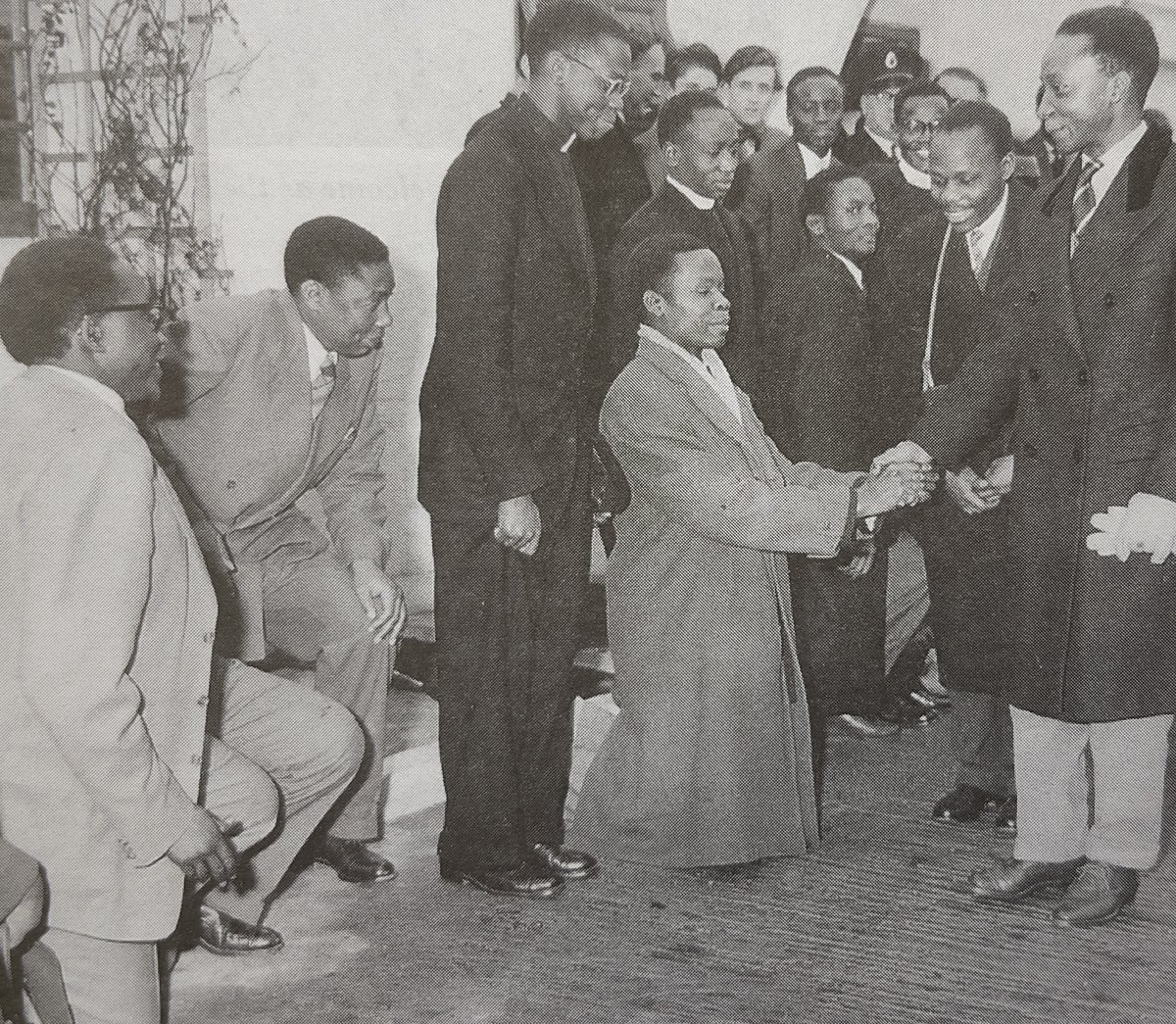
It is very sad to hear about the loss of Jonah Lwanga, the Archb. of @Orthodox_ug. May he RIP. The UOC has a long, rich history. Its founder, Father Reuben Spartas Mukasa (seen here, credit: UOC Archives), was one of the leading critics of the British empire in Africa. 1/6 

Revd RS Mukasa first launched his movement in Bulemeezi. The earliest members of the movement were involved in Abazzukulu ba Kintu, an organisation that criticised Mailo Land & inspired Uganda's first trade unions. Spartas began his formal education 2/6
at the Anglican school in Nakanyonyi. He was 8. From Nakanyonyi, Mukasa studied at Bishop Tucker's College (@UCUniversity) & Kings's College, Budo. But during his studies, he concluded that Anglicanism was only a branch of the true Church, divided in CE 1054 and 1534. 3/6
While serving with the KAR during WWI, Mukasa read Marcus Garvey's newspaper, the Negro World, where he learned about the creation of the African Orthodox Church in the United States, founded in 1918. 4/6
As Mukasa saw it, Orthodox Christianity provided a powerful historical repository from which to critique missionary paternalism and colonial power. Throughout the 1920s and 1930s, Mukasa went on to interpret the 5/6
spiritual dreams & revelations of several anti-colonial protestors, including Erieza Bwete, who was one of Buganda's foremost trade unionists. The OC in Namungoona, Kyaddondo, became one of the spiritual centres of early political protest against mailo and colonial economies. 6/6
• • •
Missing some Tweet in this thread? You can try to
force a refresh










